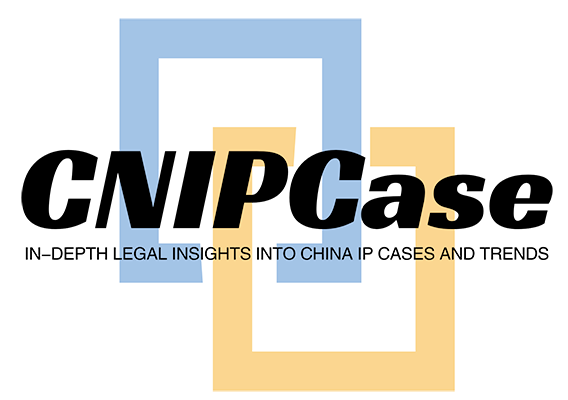Case Number: (2021) Jing 0105 Minchu 42912
Case Summary
Plaintiff: Takashi Murakami
Defendants: Alcon Company, Beijing Hengzhi Company, Shenzhen Junfei Company.
Takashi Murakami is a highly regarded contemporary artist from Japan, celebrated for his impactful work on a global scale. Among his notable creations is the "Sunflower" series, which has gained widespread acclaim and recognition.
The plaintiff claims that Alcon Company, Beijing Hengzhi Company, Shenzhen Junfei Company unlawfully produced and sold gift boxes, gift bags, makeup mirrors, and other items featuring the sunflower artwork, distributing these products on platforms like JD.com and Sina Weibo. This actions allegedly infringes upon Murakami's rights related to reproduction, distribution, and online communication.
Consequently, the plaintiff is aiming to stop the infringement, receive an official apology, and secure compensation totaling 3.5 million.
Defending Opinions
Alcon Defense
Alcon Company contended that its use of the artwork was legally authorized by Takashi Murakami, asserting a complete authorization chain and claiming to have paid a reasonable price, thereby fulfilling its duty of reasonable care and lacking any subjective fault or actions constituting copyright infringement.
Additionally, Alcon argued that its use of the artwork in peripheral products and promotional materials, as well as the mention of "Takashi Murakami," was merely a statement of authorship, devoid of confusion or false advertising that would constitute unfair competition.
Hengzhi Defense
Hengzhi Beijing Company stated that it had lawfully obtained the copyright for the artwork from Takashi Murakami for a fee and claimed the right to sublicense it, having received a "Work Registration Certificate" from the National Copyright Administration.
The company argued that mentioning "Takashi Murakami" was simply a standard acknowledgment of authorship and did not amount to false advertising or unfair competition. It contended that Murakami should not assert rights under the Anti-Unfair Competition Law beyond those related to copyright.
Junfei Defense
Shenzhen Junfei Company asserted that it meticulously reviewed the authorization chain, including the copyright contract between Takashi Murakami and Hengzhi International Company, the "Authorization Agency Contract," and the authorization documents between Hengzhi International Company and Hengzhi Beijing Company, as well as the vector images provided by Hengzhi Beijing Company.
It claimed to have proceeded with the use of the artwork only after confirming that Hengzhi Beijing Company had obtained the "Work Registration Certificate" and had fully paid the copyright fees.
Judicial Viewpoints
Alcon Trademark Infringement and Unfair Competition
In this case, Alcon Company, without Takashi Murakami's permission, commissioned others to produce and sell peripheral products such as gift boxes, mirrors, and eye masks featuring the Sunflower artwork, and disseminated images of these products on platforms such as JD.com and Sina Weibo, thereby infringing upon Takashi Murakami's rights to reproduction, distribution, and information network communication. Alcon is therefore liable for the corresponding legal consequences.
Moreover, Alcon extensively utilized the combined logo "Alcon爱尔康*村上隆太阳花" and product names such as "Alcon Custom Sunflower Gift Box" and "Alcon·Takashi Murakami Limited Edition Sunflower Gift Box" in its promotional activities without Takashi Murakami's consent, which could easily mislead the public into believing that the products were authorized by or associated with Takashi Murakami, thereby constituting unfair competition through confusion, for which Alcon is also liable.
Joint Liability of Hengzhi Beijing and Shenzhen Junfei
According to Article 1168 of the Civil Code of the People's Republic of China, if two or more parties jointly commit an infringement resulting in damage to others, they shall bear joint liability. In this instance, Alcon China Company unlawfully utilized Takashi Murakami's Sunflower artwork and name for promotional purposes without permission, directly constituting copyright infringement and unfair competition.
While Hengzhi Beijing Company did not directly carry out the actions mentioned, the rights it allegedly transferred to Alcon China Company were invalid from the beginning, as they were founded on forged authorization documents created by its former legal representative, Zhang Mo. Hengzhi Beijing Company was aware of this and acted with intent, leading to its joint liability for the damages resulting from Alcon China Company's copyright infringement and unfair competition. Additionally, Shenzhen Junfei Company, which acted as an intermediary between Alcon China Company and Hengzhi Beijing Company and was responsible for designing and distributing the infringing products and promotions, is also deemed a joint perpetrator of Alcon China Company's actions and should share in the liability for the damages in this case.
Any justifications in the defense?
Regarding Alcon China Company's defense that it should not be held responsible due to a lack of subjective fault in committing the infringement and unfair competition, the court holds that while Alcon acted based on Hengzhi Beijing Company's false authorization, it still bears some subjective fault.
Firstly, the authorization chain documents provided by Shenzhen Junfei Company contained significant flaws. The "Copyright Contract" between "Takashi Murakami" and Hengzhi International Company was entirely in English, lacked notarization, and bore no signing date; the name of the second party was incorrectly printed as "Takashi: Muradami," which does not accurately reflect Takashi Murakami's English name; the document was stamped by Hengzhi International Company in the section for the first party, while the second party's signature was handwritten and illegible.
Secondly, although Hengzhi Beijing Company obtained a "Work Registration Certificate" from the National Copyright Administration of China, this certificate does not substantiate its claim as the copyright owner of the spherical sunflower artwork. Given Takashi Murakami's nationality and prominence, the court does not accept Alcon China Company's assertion that it fulfilled its duty of care based solely on this certificate.
Finally, the authorization chain documents received by Alcon China Company, including the aforementioned documents, were merely copies forwarded by Shenzhen Junfei Company via email, which Alcon China Company reviewed. Clearly, it did not fulfill its due duty of care. Therefore, the court finds Alcon China Company's defense to be invalid and will not support it.
In response to Shenzhen Junfei Company's defense that it did not engage in copyright infringement or unfair competition and lacked subjective fault, the court concludes that Shenzhen Junfei Company was not merely an intermediary; it actively participated in the signing of the authorization documents and played a significant role in the infringing actions.
Additionally, it was the specific designer and distributor of the infringing products and promotions, directly benefiting economically from these actions. Consequently, Shenzhen Junfei Company's defense is also deemed invalid and will not be supported by the court.


